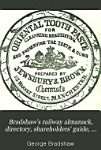Watching the bond spreads has become a daily fascination. The figures are important – they are about how much more our country pays to borrow money than do the sound economies of Northern Europe and North America, the Germans, the Scandinavians, the Americans, the Canadians. But they are not the only numbers to be checked, though; there are French rugby scores, and English council by election results, and the number of visitors this blog receives, and numerous other variables. The numbers assume an independent life.
We all remember kids at school who had a passion for numbers; or maybe we can all recall boys at school who had a passion for numbers, because, looking back, it seemed a male thing. How many girls were really much into obscure mathematical stuff?
There were guys who remembered cricket statistics or football league tables or attendances at matches. Often they weren’t the best at sports; sometimes they were loners. I remember them because I think I was probably one of them.
Why the fascination with numbers? I wondered. Maybe it was because numbers didn’t hurt you; numbers didn’t bully you; numbers didn’t call you names; numbers didn’t have any memory, emotion or pain attached to them; they were simply numbers. They were neutral, detached, indifferent to how you responded to them.
The passing years brought a realisation that the sets of numbers available is almost unlimited. There are stock market indices from around the world, currency exchange rates; government economic data; and, of course, attendances at football matches. The Baltic Dry Index, which is a measure of the cost of bulk shipping can conjure up a world of great ships carrying vast cargoes to exotic destinations. I once bought a Thomas Cook European Railway Timetable; I had the excuse that we wanted to travel from Sweden to Copenhagen, but the real reason was to spend time concocting imaginary journeys. All that is required for contentment is numbers. If I ever obtain a pre-war copy of Bradshaw’s Railway Timetable I shall have reached a personal heaven.
I went through a phase of being fascinated by the sudoku puzzles in the daily newspaper, spending ages engrossed in the completion of a single puzzle, though abandoned them when I realised that I could never complete more than moderate puzzles.
Reading through columns of numbers doesn’t cost me any psychological effort. Numbers have a beauty and life of their own.
People are fickle. Numbers are constant.
